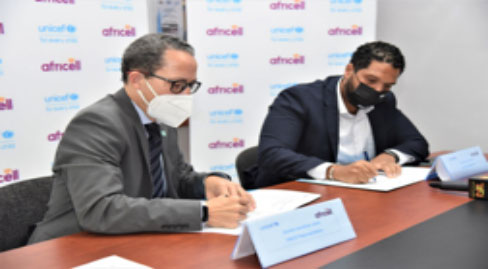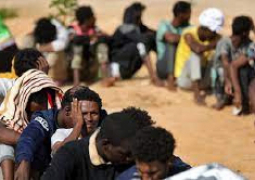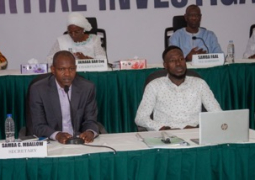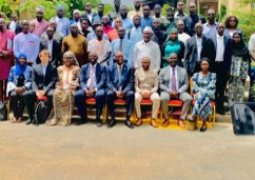
Under the Memorandum of Understanding signed at the UNICEF offices in Cape Point on September 23, 2021, Africell will provide free SMS services to U-Report, a free social messaging platform developed and rolled out by UNICEF and partners. High level representatives from the Gambia Chamber of Commerce and Industry and the National Youth Council graced the event.
“Young people constitute a critical mass of the Gambian population and their voices are fundamental in shaping policies and development programmes,” said Gordon Jonathan Lewis, UNICEF The Gambia Representative. “We see the signing of this partnership today as an initial step towards a lasting relationship that will demonstrate the added value that businesses can contribute towards building partnerships for accelerated results for children and youth”.
U-Report is a social messaging tool that allows users to respond to SMS polls and participate in discussions about issues that matter to them. Results from polls are automatically generated and shared with relevant partners to inform decision-making. The platform was launched in The Gambia in March 2019 and has since registered more than 12,700 members, who are known as U-Reporters. U-Report is currently used in 68 other countries and has more than 11 million global users.
“Africell is proud to contribute to bridging the gap between policymakers and the next generation of leaders,” said Hussein Diab Ghanem, Africell Gambia CEO. “We remain committed to supporting the rights and the development of young people in The Gambia.”
“This moment represents one of the greatest milestones I have witnessed in my U-Report journey”, said Ebrima M. Touray, a U-Report Ambassador. “I strongly believe this partnership will make a huge difference in how young people engage with policymakers and contribute to the national discourse.”





